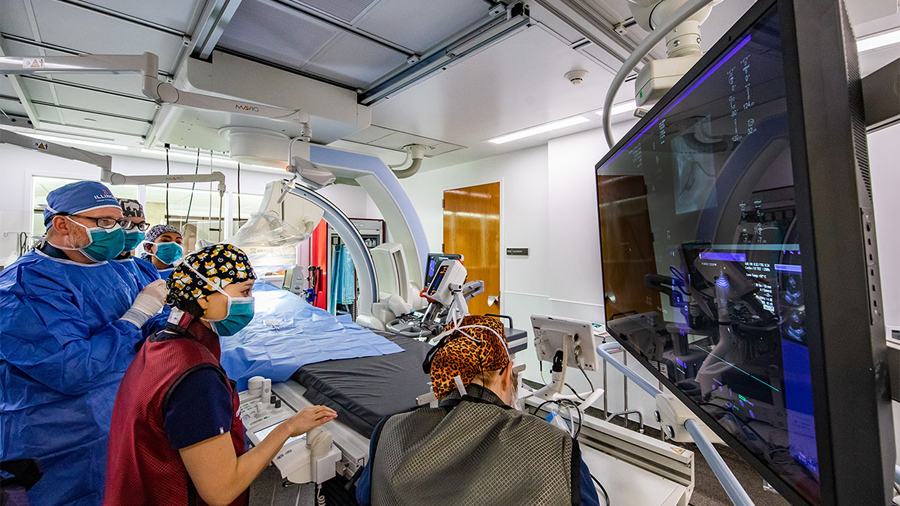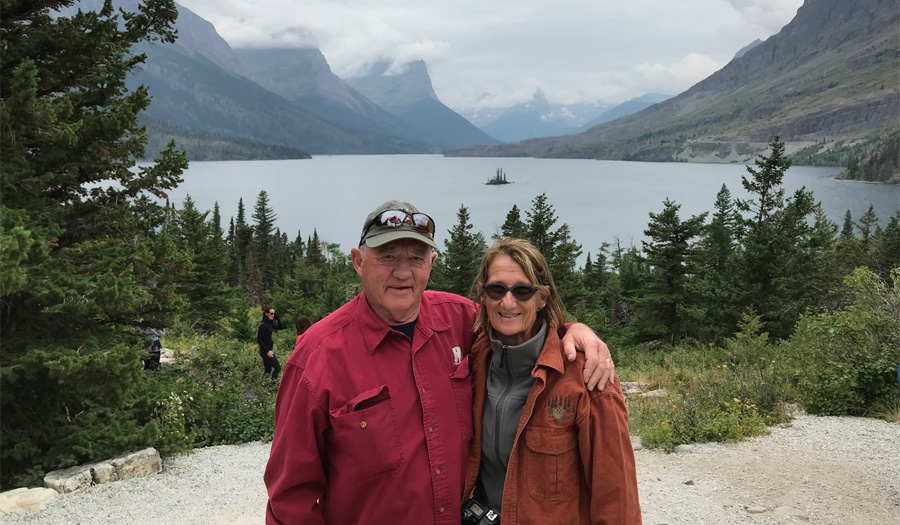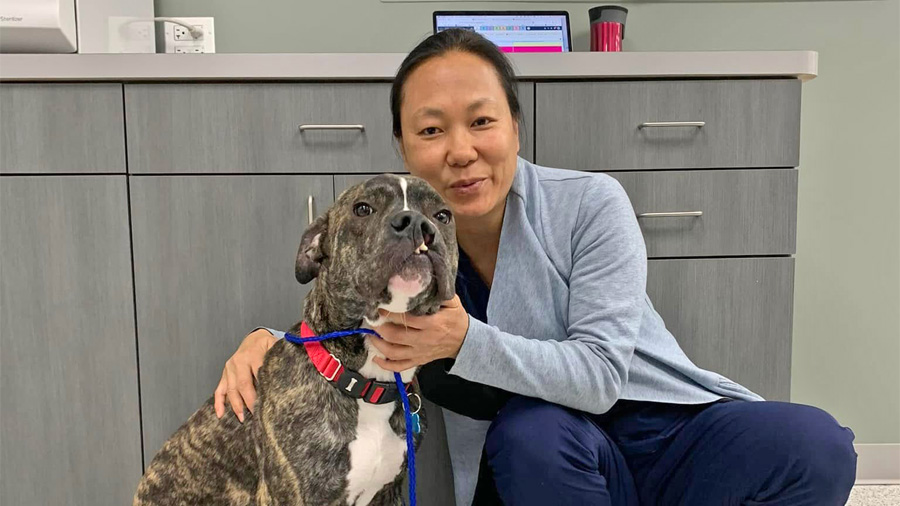Deserts in the Prairie State? Yes, according to Dr. Laura Frazier, who leads the community medicine program at the College of Veterinary Medicine. She says there are many “veterinary deserts”—areas where pet owners do not have access to the kinds of preventive care that helps keep family members and their pets together and healthy.
Thanks to a $100,000 gift from the Decatur & Macon County Animal Shelter Foundation, the University of Illinois program will soon be bringing care into areas where it’s needed most. The foundation made the lead gift for funding a new custom-built mobile surgical veterinary clinic.
The donation was made possible by a bequest to the Decatur foundation from the estate of Grant S. Staley, an avid pet lover, who died in 2017.
Every dollar has direct impact on pet health and people’s health too, since some pet health problems can be transmitted to their human family members.
Dr. Laura Frazier
With the new vehicle, the community medicine program will travel to underserved areas in central Illinois—including Decatur—to provide spay and neuter surgeries as well as routine health care including vaccinations, deworming, and flea and tick prevention. The vehicle is expected to hit the road during fall semester 2024.
Helping Pets, Their Families, and Future Veterinarians
“We are so grateful for the support that allows us to bring affordable preventive care to pet owners who have limited means,” said Dr. Frazier. “Too often pets are surrendered to shelters because owners are unable to pay for basic care. The mobile clinic helps us keep pets in homes.”
The community medicine program also plays a big role in developing confident, competent graduates from the College of Veterinary Medicine. Students who participate in the program have the opportunity to gain extensive surgical experience. Dr. Frazier also hopes students will be inspired to enter the field of community medicine and to choose to practice in low-income or rural areas after graduation.
“Without donors, our program would not be possible,” said Dr. Frazier. “Every dollar has direct impact on pet health and people’s health too, since some pet health problems can be transmitted to their human family members.”




